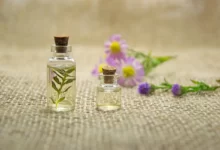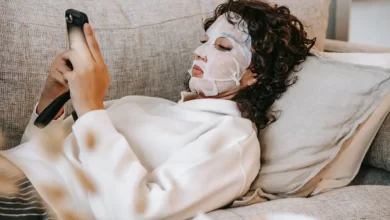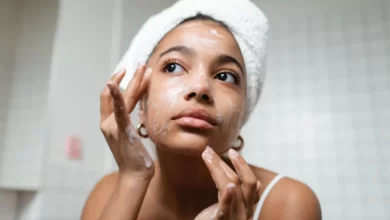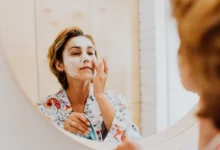Acne is a common skin condition that affects people of all ages and backgrounds. Whether you’re a teenager navigating the challenges of puberty or an adult dealing with unexpected breakouts, understanding the causes, treatments, and prevention strategies for acne is essential to maintaining clear and healthy skin. In this comprehensive guide, we’ll delve into the world of acne, exploring its underlying causes, various treatment options, and effective prevention techniques.
Understanding Acne: The Basics
To understand how to combat acne, it’s essential to grasp the underlying mechanisms that trigger its formation. Acne develops when hair follicles become clogged with a combination of sebum (natural skin oil), dead skin cells, and sometimes bacteria. This clogging leads to the formation of various types of acne lesions, including whiteheads, blackheads, papules, pustules, nodules, and cysts.
While genetics do play a role in determining one’s predisposition to acne, several factors contribute to its development:
- Excess Sebum Production: Sebaceous glands produce sebum to keep the skin moisturized. However, excessive sebum production can lead to clogged pores and provide an ideal environment for acne-causing bacteria to thrive.
- Dead Skin Cells: As the skin goes through its natural shedding process, dead skin cells can accumulate on the skin’s surface. When these cells mix with sebum, they can form plugs that block hair follicles.
- Bacterial Influence: The bacterium Propionibacterium acnes resides on the skin’s surface. When trapped within clogged follicles, it can multiply and cause inflammation, resulting in redness and swelling around acne lesions.
- Hormonal Fluctuations: Hormones called androgens stimulate the sebaceous glands to produce more sebum. Adolescents experience a surge in androgens during puberty, which is why acne is often associated with this stage of life. Hormonal changes during the menstrual cycle and pregnancy can also trigger acne.
- Diet and Lifestyle: Emerging research suggests a potential link between diet and acne. High-glycemic diets and excessive dairy consumption, for instance, may exacerbate acne in some individuals. While the exact mechanisms are still being explored, a balanced diet rich in whole foods is generally recommended for skin health.

Effective Treatments for Acne
Thankfully, numerous treatment options are available to manage and reduce the severity of acne. The choice of treatment depends on the type and severity of acne, as well as individual skin sensitivity. It’s important to consult a dermatologist before beginning any treatment regimen. Here are some common acne treatments:
- Topical Treatments: Over-the-counter creams, gels, and lotions containing ingredients like benzoyl peroxide, salicylic acid, and retinoids can be effective. These substances help to unclog pores, reduce inflammation, and promote the shedding of dead skin cells.
- Prescription Medications: Dermatologists might prescribe stronger topical treatments, oral antibiotics, or oral contraceptives (for females) to regulate hormones. In severe cases, isotretinoin, a potent oral medication, may be recommended to shrink oil glands and reduce sebum production.
- Procedures: Various dermatological procedures, such as chemical peels, microdermabrasion, and laser therapy, can help improve the appearance of acne and its associated scars by promoting skin renewal and collagen production.
- Lifestyle Adjustments: A consistent skincare routine involving gentle cleansing and moisturizing can significantly impact acne management. Sun protection is also crucial, as some acne medications can increase skin sensitivity to sunlight.
Preventing Acne: Best Practices
“Prevention is better than cure” holds true for acne as well. By adopting a few healthy habits, you can significantly reduce the likelihood of acne breakouts:
- Maintain a Consistent Skincare Routine: Use a gentle cleanser twice a day to remove excess oil and impurities. Avoid harsh scrubbing, as it can worsen inflammation.
- Choose Non-Comedogenic Products: Opt for makeup and skincare products labeled as non-comedogenic or oil-free. These won’t clog your pores.
- Hands Off: Resist the urge to pick, pop, or squeeze pimples, as it can lead to infection and scarring.
- Stay Hydrated: Drinking plenty of water helps keep your skin hydrated and supports overall skin health.
- Healthy Diet: Incorporate a balanced diet rich in fruits, vegetables, lean proteins, and whole grains. Some studies suggest that omega-3 fatty acids and antioxidants might have a positive impact on acne.
- Stress Management: High stress levels can trigger hormonal fluctuations that contribute to acne. Practice relaxation techniques such as yoga, meditation, or deep breathing.
- Regular Exercise: Physical activity improves blood circulation, which can help nourish your skin cells and keep them healthy.
- Clean Bedding and Phones: Regularly wash your pillowcases, sheets, and phone screens to prevent the accumulation of oils and bacteria.
Conclusion
Acne might be a common skin woe, but armed with the right knowledge, you can manage, treat, and even prevent it effectively. Remember that every individual’s skin is unique, so finding the right treatment might require some trial and error. If your acne is persistent or severe, consulting a dermatologist is crucial for personalized guidance and treatment plans. By embracing a holistic approach that includes proper skincare, a healthy lifestyle, and informed choices, you can pave the way for clear, radiant skin that boosts your confidence and well-being.









